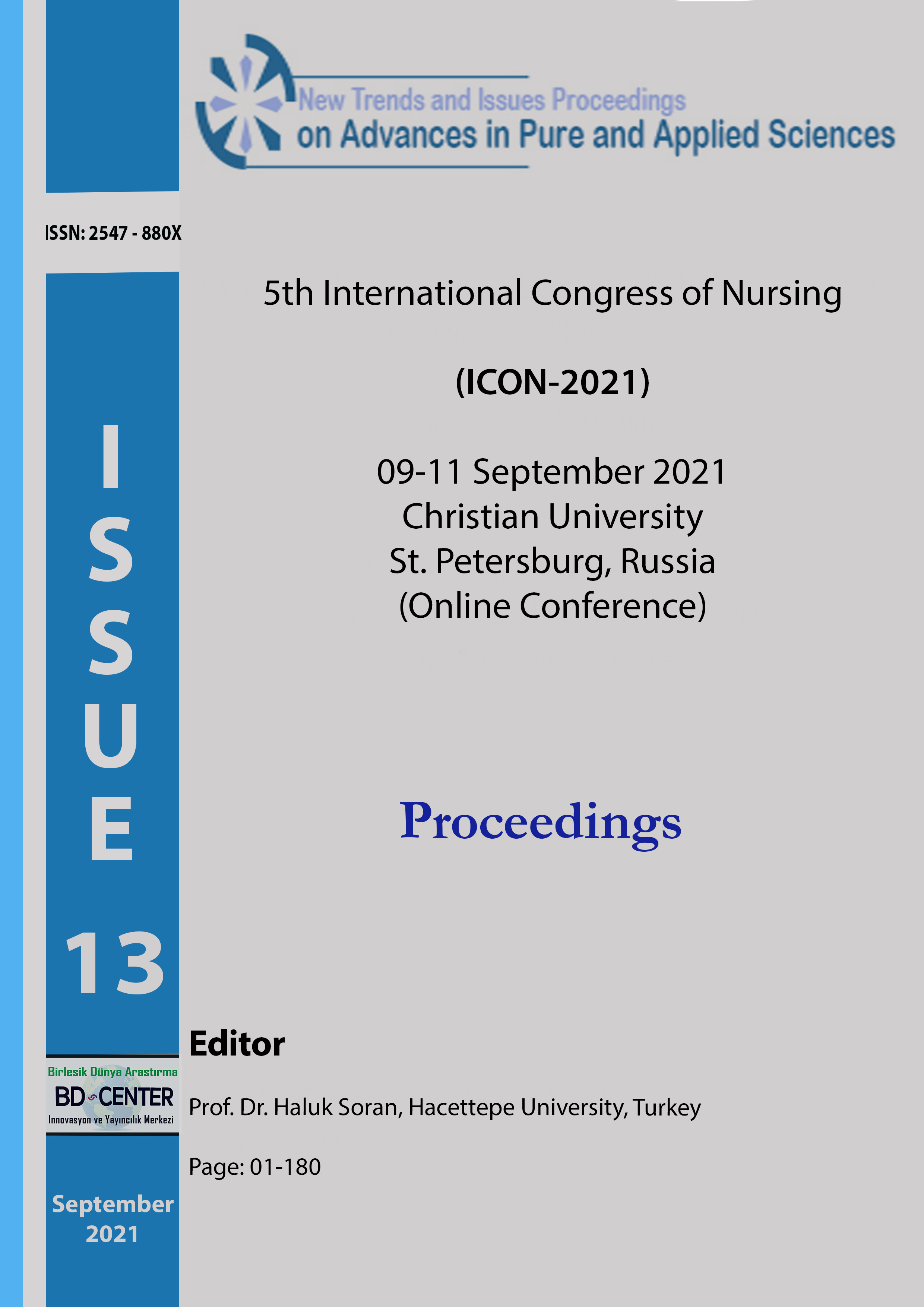Determination of health beliefs and practices of university students towards breast cancer
Main Article Content
Abstract
This study was conducted as a descriptive study to determine the health beliefs and practices of university students towards breast cancer. The study was conducted between 05.06.2021 and 20.06.2021 with the participation of 522 female students who were studying in a university and who agreed to participate in the study. The data were collected with an information form prepared in line with the literature by the researcher which included 24 questions to find out the sociodemographic characteristics and health beliefs and practices of students towards breast cancer and Champion Health Belief Model Scale. Normality distribution of the data was evaluated with Shapiro–Wilk and Kolmogorov–Smirnov tests. Kruskal–Wallis test and Mann–Whitney U test were used in data analysis.
It was found that 98% of the students in the study were single, 70.8% had a nuclear family and 34.2% had a democratic family structure; families of 83.2% had social security, 71.4% had knowledge about breast cancer, 27.1% received information about breast cancer from the Internet and 25.5% from school; 60.1% knew how to make breast self-examination (BSE), 33.5% made BSE whenever they thought of it, 93.5% did not have clinical breast examination, 85.9% did not have any relatives diagnosed with breast cancer and the mean age of the patients was found as 20.5 ± 1.5. Students had a median score of 7 (3–15) from Champion’s Health Belief Model Scale susceptibility subscale, a median score of 21 (6–30) from seriousness subscale, a median score of 23 (5–25) health motivation subscale, a median score of 18 (4–20) from BSE benefits subscale, a median score of 14 (8–40) from BSE barriers subscale, a median score of 33 (10–50) from BSE self-efficacy subscale, a median score of 20 (5–25) from mammography benefits subscale and a median score of 23 (11–55) from mammography barriers subscale. In line with the scores students got from Champion’s Health Belief Model Scale subscales, it was found that students had moderate level of susceptibility perception, high level of seriousness, health motivation, BSE self-efficacy, BSE benefits and mammography benefits perceptions and low level of BSE barriers and mammography barriers perceptions. In line with the results found, it is recommended to increase students’ awareness about practices to prevent breast cancer and early screening methods.
Keywords: Belief, breast cancer, health, practice, student.
Downloads
Article Details

This work is licensed under a Creative Commons Attribution 4.0 International License.
Authors who publish with this journal agree to the following terms:- Authors retain copyright and grant the journal right of first publication with the work simultaneously licensed under a Creative Commons Attribution License that allows others to share the work with an acknowledgement of the work's authorship and initial publication in this journal.
- Authors are able to enter into separate, additional contractual arrangements for the non-exclusive distribution of the journal's published version of the work (e.g., post it to an institutional repository or publish it in a book), with an acknowledgement of its initial publication in this journal.
- Authors are permitted and encouraged to post their work online (e.g., in institutional repositories or on their website) prior to and during the submission process, as it can lead to productive exchanges, as well as earlier and greater citation of published work (See The Effect of Open Access).
